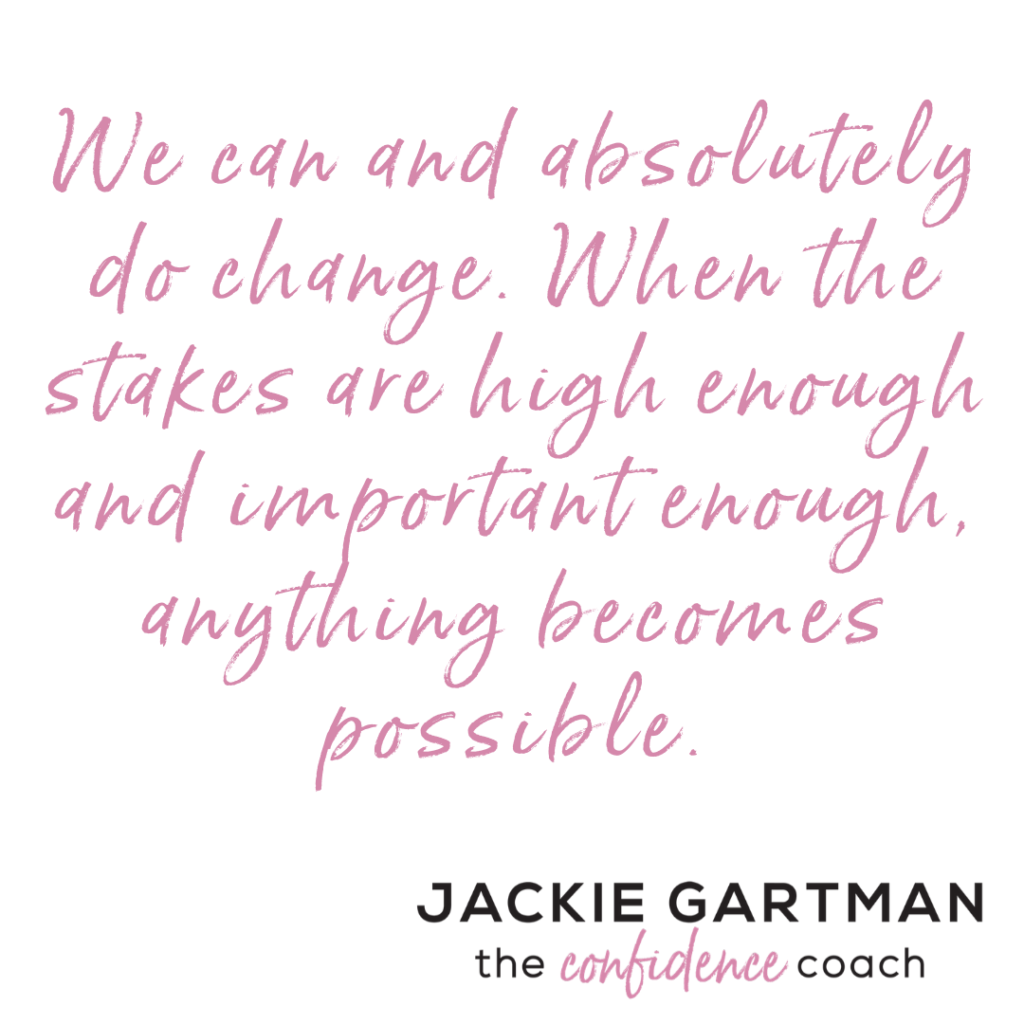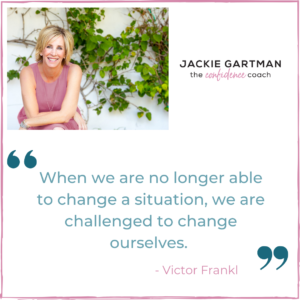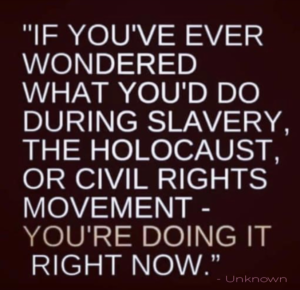“People don’t change.”
I was having lunch with a friend, who offered the above with a raised eyebrow. I adore her, but I fundamentally disagree with her. It’s my job to. As a life coach, my experience is that people do indeed change – but they need a good reason.
Change is hard. No one gets motivated to do hard things unless the way they’ve been doing it flatly no longer works or stops getting them the outcome they want. For most of us, this means a catalytic event. In other words, something happens.
My clients hire me when life is no longer as they knew it and they are no longer the person they once were. This might be after a death in the family, or finding out they can’t have children, or getting a disturbing diagnosis, or learning their partner wants a divorce. They feel stuck. They feel discord in their relationships. They can’t stay in a job they hate one more month, one more year.
My catalytic event came in the form of a marital crisis three years ago. I was hurt and I was angry, and I was so outta there. I was convinced nothing could turn our marriage around, no matter what my husband might say or do to try and change my mind. Sure, I knew the personal transformations people – my clients – are capable of. But this was different; this was personal. We separated.
I licked my wounds while I scrolled through attorney websites and contemplated life as a single, fifty-something woman. I wasn’t thrilled by the prospect. Still, when my husband begged me to go into couples therapy, I refused – and not politely. “I’m not the problem,” I yelled. “You are!”
In the end, I agreed to go see a therapist. We had two grown children and 32 years’ investment in our life together, and both were on my mind. But mostly, I figured a therapist could help us tell our kids that we were moving forward – apart.
I entered therapy continuing to point fingers, and I felt justified in doing so. But I began to see that I’d become overly invested in my role as a disappointed victim and in his as an insensitive perpetrator. I had donned my belief that things were his fault like protective armor to keep me from feeling vulnerable. The result was an angry and arrogant inflexibility that, weirdly enough, left me feeling powerless. In trying to balance the scale, I’d switched from victim to perpetrator myself, wielding withering criticism and withheld affection like weapons.
Our therapist very gently helped us see that we had co-contributed to the diminishment and demise of our marriage. While it had been more or less puttering along on the outside, it had been slowly breaking apart on the inside.
We learned that we were missing something so fundamentally important it’s no wonder our marriage didn’t implode well before Y2K. Our therapist, author of Wired for Love, calls it a “Couple Bubble,” which he defines as being in a foxhole together, consistently having each other’s back both publicly and privately.
The Couple Bubble is made up of the following rules:
- I will never leave you.
- I will not frighten you on purpose.
- If you’re in distress, I will relieve you, even if I’m the one causing it.
- Our relationship is more important than my need to be right.
- You’ll be the first to hear about anything, not the second, third, or fourth.
These rules create secure and functioning relationships – but we’d broken all of them. In fact, I don’t think we’d ever had them in the first place. We didn’t know we could or should.
Spoiler alert: we didn’t divorce. My husband and I re-committed to making our marriage work.
We now have a beautifully imperfect Couple Bubble, and we do our best to live by its principles.
He’s still a pain in the ass, like when he wants to discuss what’s for dinner before I’ve had my first cup of coffee or when he doesn’t put the toilet seat down. And I’m still his pain in the ass, like when I’m hangry and impatient or when I morph into the worst backseat driver ever.
The way he has changed, however, has been much more profound than bathroom etiquette. He shows patience with me, stays present instead of crawling into his man cave when we get into an argument, and he initiates contact with our children instead of relying on me.
He stands up for himself more too. He admits he’s hurt when I tease him in tender places. He says no when he truly doesn’t want to do something. He expresses himself much more readily and freely, asking for my attention instead of rubbing his calloused feet against mine.
My husband’s new name is 2.0. We’ve been married for three years now.
Congratulations gratefully accepted; gifts not needed.
I’ve changed too. I recognize that he has insecurities just like I do, and I try not to poke him in those places. I slow my roll instead of insisting on everything happening instantaneously. I try to see things from his point of view even if I don’t agree.
It would have been easier to leave. Instead, we chose courage over comfort, took a deep dive into our psyches and our souls, and identified the shadow parts that negatively impacted the quality of our marriage. If we hadn’t – if we’d split – we doubtless would have remained ignorant of our blind spots and ultimately repeated the same mistakes with others. We chose ourselves, and we chose each other. I’m proud of us.
I’ve always read and heard that forgiveness is a decision, and one you must make in order to order to heal. But forgiveness is just as much a process as it is a single moment of choice. In repairing what was broken – what no longer worked – we created a secure, functional relationship far beyond what we had before, even as newlyweds.
It’s an old saw that “change is the only constant,” and yet we hold ourselves as humans apart from that process, as if it only applies to weather and dissolution. We can and absolutely do change. When the stakes are high enough and important enough, anything becomes possible.






